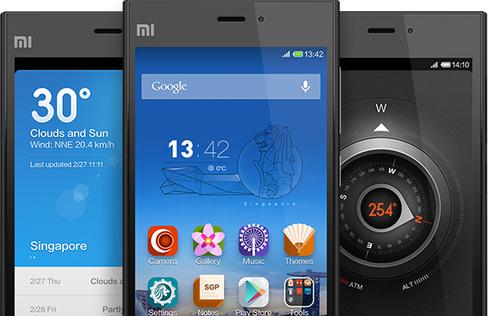Xiaomi has usurped Samsung's smartphone lead in the world's largest market.


5 Inexpensive Smartphones: No Perfect Choice
5 Inexpensive Smartphones: No Perfect Choice (Click image for larger view and slideshow.)
Xiaomi, a smartphone maker based in China, sold more devices in its home market during the second quarter than Samsung, the world's No. 1 supplier of devices. Samsung owned the Chinese smartphone market for more than two years, but data from Canalys says its reign has come to an end.
Samsung sold 13.2 million smartphones in China during the second quarter, down from 15.5 million in the year-ago period. Samsung's sales declined despite the arrival of the Galaxy S5, its flagship smartphone for the year. Samsung faced a tough quarter, and partially blamed its reduced profits on weak sales in China. Samsung's competitors made significant gains on the behemoth in the April to June time frame.
During the same period, Xiaomi's China sales climbed more than three-fold from 5 million to 15 million units. It easily surpassed Samsung. Lenovo, another China-based firm, ranked third in the market with sales of about 11 million.
[Take a look inside Amazon's new smartphone: Amazon Fire Teardown.]
Xiaomi has only been around since 2010, but it found a way to appeal to the masses in its home market more so than Samsung. "The combination of high spec devices, low prices, and an ability to create unprecedented buzz through online and social platforms has proved an irresistible proposition for the Chinese," said Dominic Sunnebo, strategic insight director at Kantar WorldPanel, earlier this year. Xiaomi's low-cost devices are an easier sell to budget-conscious shoppers than are flagship devices from Samsung and LG.
Xiaomi ranks as the world's fifth-largest seller of mobile devices, according to Strategy Analytics, but that data contradicts findings from IDC, which says LG holds the number five spot. Whatever its worldwide ranking, Xiaomi is almost completely reliant on its home market for sales. Data suggests Xiaomi shipped as few as 100,000 devices outside of China during the second quarter, which stands in stark contrast to the tens of millions shipped elsewhere by the likes of Samsung, LG, Lenovo, Huawei, and ZTE. Xiaomi is hoping to change that.
Last year it poached Hugo Barra from Google. Barra was VP of the Android mobile operating system at Google. He now serves as Xiaomi's international VP and has helped put a new face on the company. Xiaomi is targeting countries such as Brazil, Indonesia, Malaysia, Mexico, the Philippines, Singapore, and Thailand for expansion. It has already launched one phone, the Mi 3, in India.
Xiaomi has yet to target the US, and it likely won't for some time. Xiaomi's Chinese rivals Huawei and ZTE are already struggling to sell devices to US consumers.
Consumerization means CIOs must grant personal devices access to corporate data and networks. Here's how to avoid loss and corruption. Get the new Mobile Security Action Plan issue of InformationWeek Tech Digest today (free registration required).
About the Author(s)
You May Also Like







